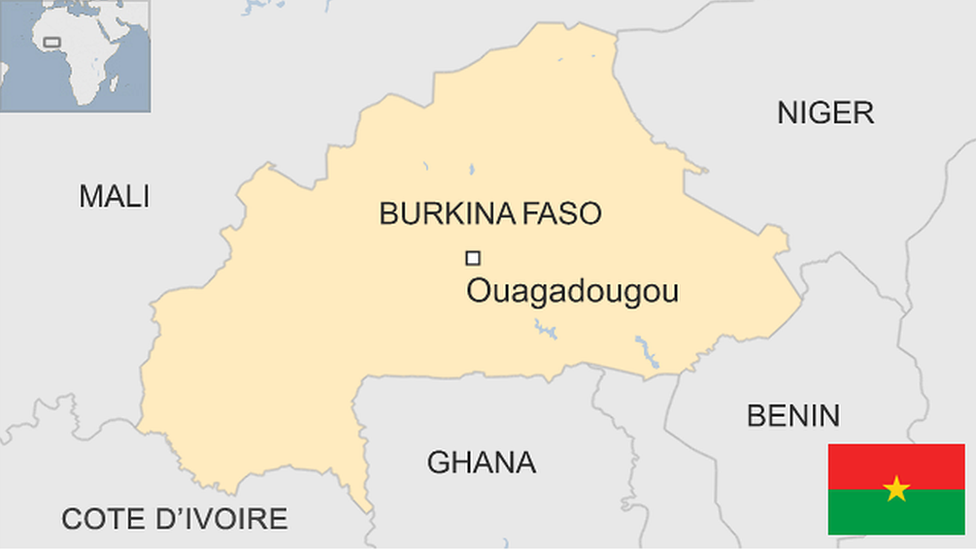Ivory Coast beach attack: France's former colonies under growing threat
- Published
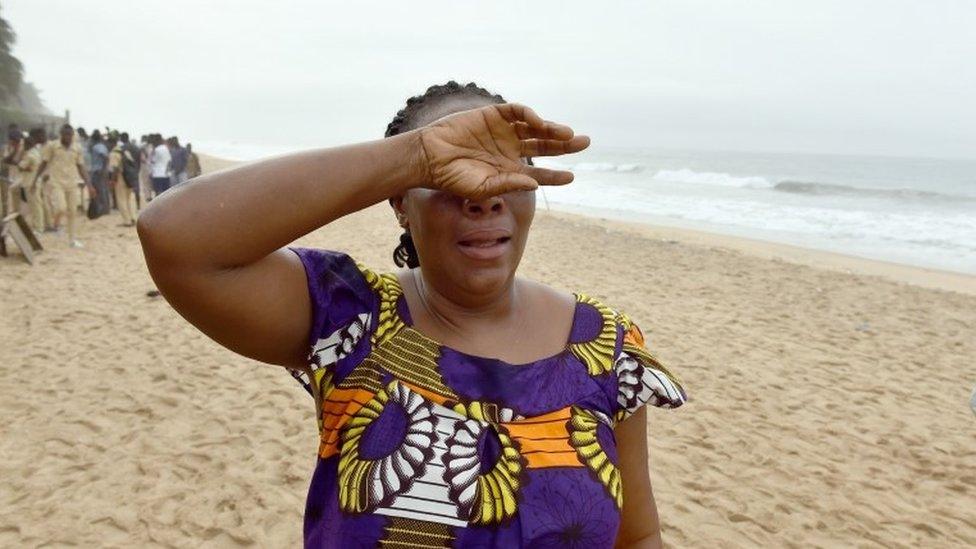
Ivory Coast has never been targeted before by militant Islamists
Militant Islamists are expanding their influence in West Africa, with at least 18 people killed in an attack on a beach resort in Ivory Coast on Sunday.
This is the first assault by jihadists in the West African state, raising fears of more instability in the region.

Why Ivory Coast?
The attack suggests al-Qaeda-linked militants are increasingly focusing on France's former colonies, as a way of getting back at France for its leading role in fighting them in West Africa.
The former colonies have become increasingly vulnerable following a French-led military operation in northern Mali in 2013, which beat back al-Qaeda in the Islamic Maghreb (AQIM) and its local affiliates after they seized control of the region and threatened to take the capital, Bamako.
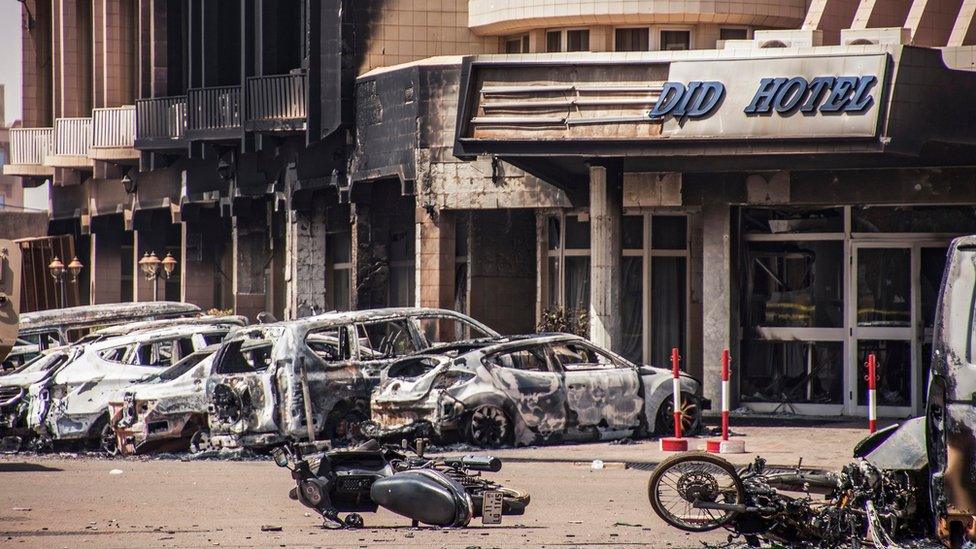
Car bombs exploded outside a hotel in Burkia Faso in January
The insurgents retreated to their desert hide-outs and regrouped and in the last year have launched high-profile gun and bomb attacks.
In November, they killed 22 people in an attack on a luxury hotel in Bamako.
In January, at least 30 people were killed in an assault on a hotel and cafe popular with foreigners in Burkina Faso's capital, Ouagadougou.
These were the first such attacks in the two cities, threatening the vital tourism industry.

Do these countries have a history of Islamic extremism?
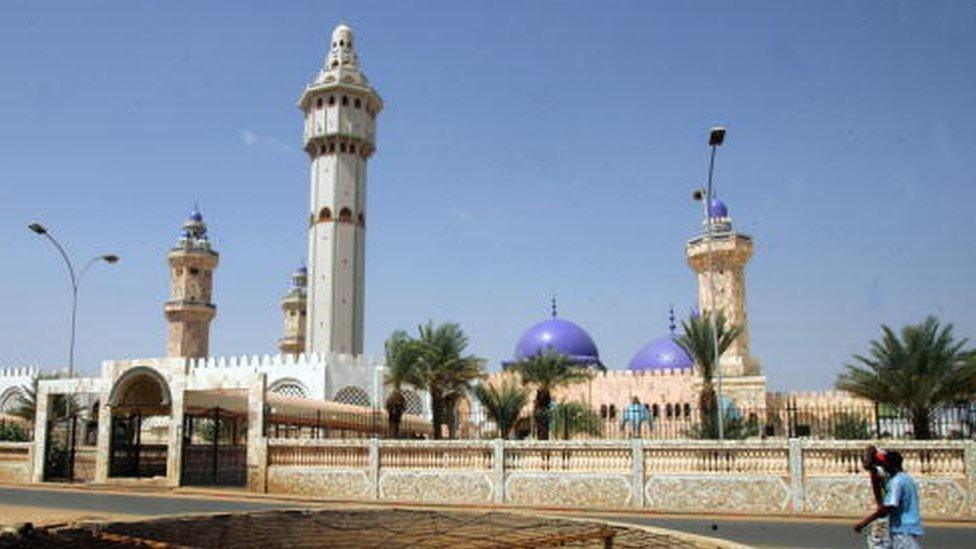
Most Muslims in the region follow a tolerant version of Islam
No. Muslims in former French colonies in sub-Saharan Africa have always practised a moderate version of Islam, embracing French culture and its people far more than their counterparts in North Africa.
In fact, Ivory Coast's Muslim President Alassane Ouattara is married to French national, Dominique Nouvian, who was born Jewish but later became Catholic.
Senegal's former President Abdoulaye Wade is also married to a French national, Viviane Wade.
So, the growth of militant Islam in these countries has come as a shock. Groups like AQIM may be exploiting high levels of unemployment to gain recruits.

Could it get worse?
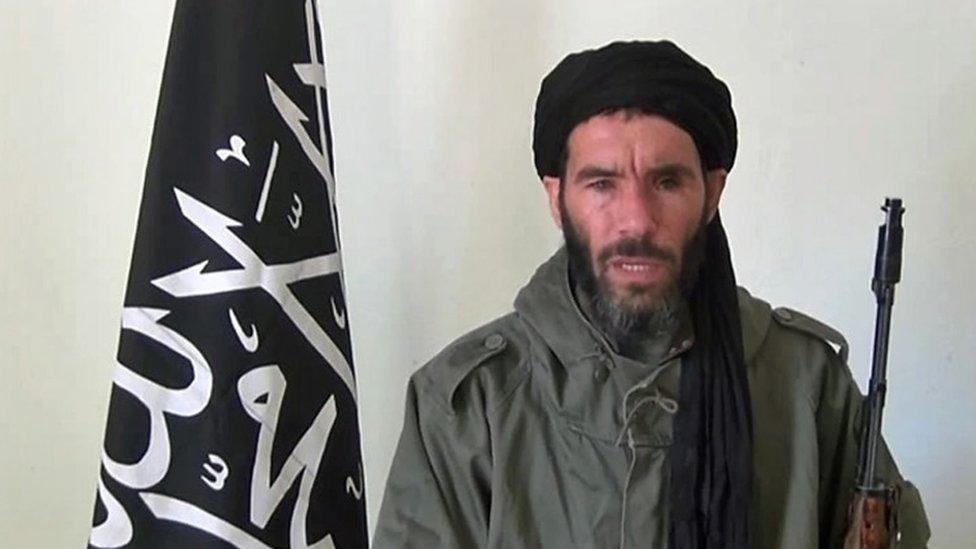
Mokhtar Belmokhtar is one of the most notorious jihadis in the region
The recent attacks have all been linked to veteran jihadist Mokhtar Belmokhtar, who was behind the audacious siege on the well-secured Algerian gas plant in 2013.
Following the Burkina Faso attack, Senegal, another former French colony popular with tourists, ordered that security be tightened at hotels.
This followed November's arrest in Senegal of some imams on suspicion of promoting radical Islamist ideology or having close ties with the Boko Haram, a militant group which launched an insurgency in Nigeria, a former British colony, in 2009.
Senegalese officials raised fears that Boko Haram, already active in Niger, Chad and Cameroon, all former French colonies, was expanding its influence in West Africa.
Boko Haram is affiliated to the Islamic State group, which is al-Qaeda's rival, and there is concern that competition between the two to be the most ruthless jihadi group could lead to more attacks in West Africa.

What is being done to tackle the militants?
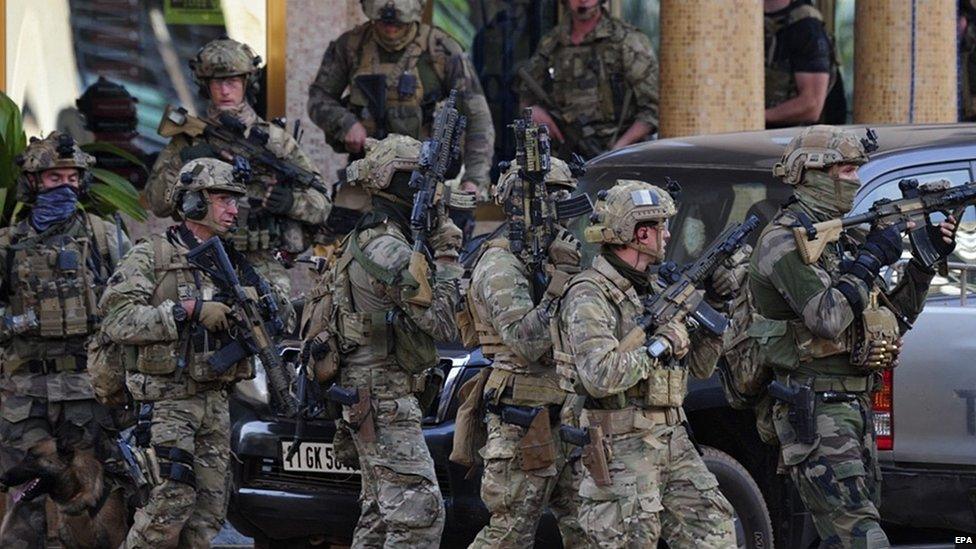
France has vowed to defeat the militants
France has about 3,000 troops in the region as part of Operation Barkhane, which French officials describe as the "pillar" of their counter-terrorism strategy in the region.
The troops are spread across five countries - Mali, Mauritania, Burkina Faso, Niger and Chad.
Apart from tackling militants in these countries, Operation Barkhane aims to break up arms-smuggling gangs, which operate freely across the region because of its porous borders.
Many of the weapons come from Libya, which has turned into what some analysts call an arms bazaar since the overthrow of long-serving ruler Muammar Gaddafi in 2011.
- Published14 March 2016
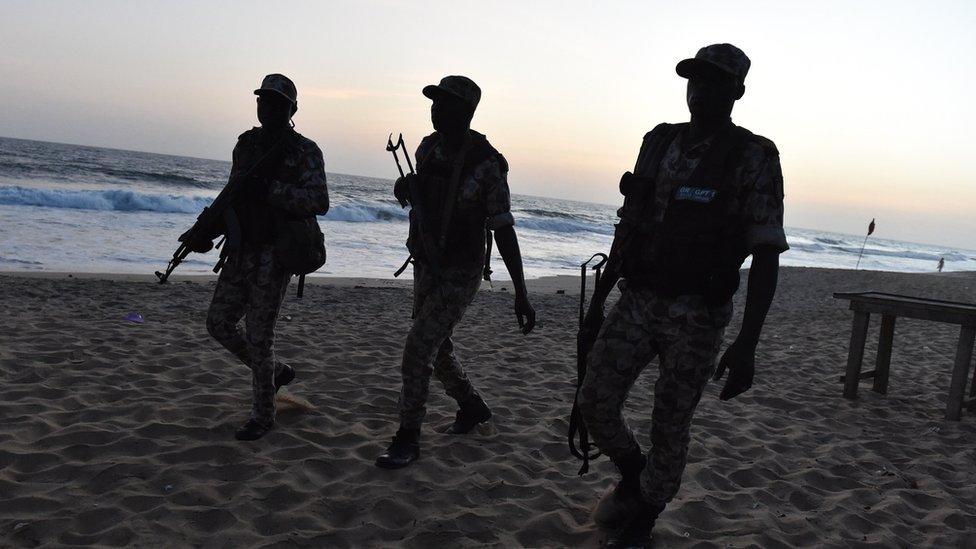
- Published16 January 2016
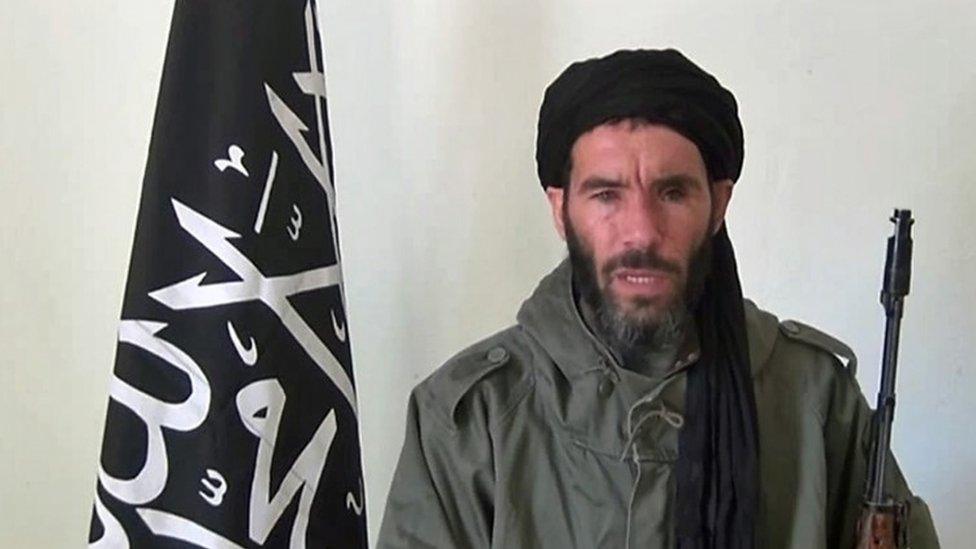
- Published17 January 2013
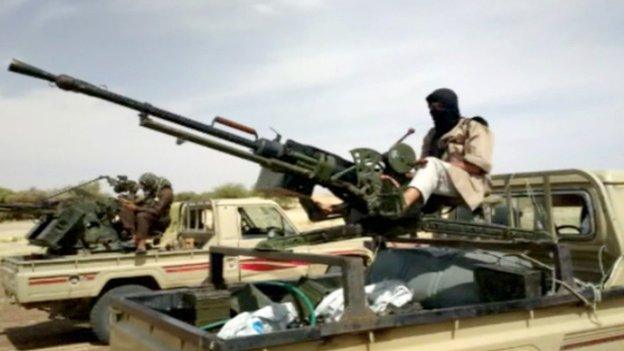
- Published26 February 2024
